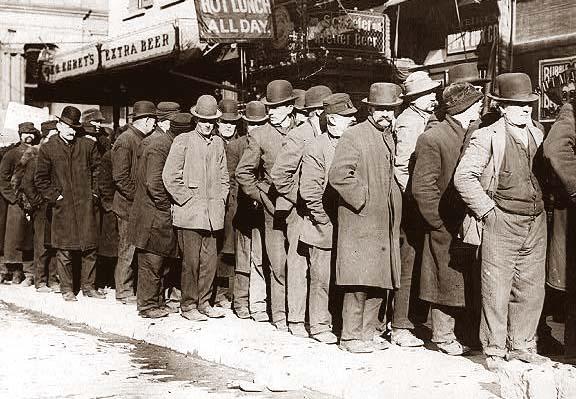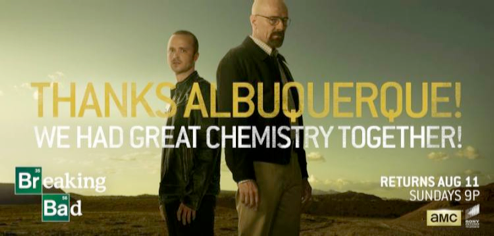This year we’re giving you a week’s notice before you camp out like a masochist. Today’s rhetorical discussion question: Is your time worth anything? Anything at all? If Black Friday represents something other than an unmarked holiday for you and yours, an opportunity to do nothing that’s normally required of you, a day on a par with Veterans Day and Christmas, only without an official designation of its own, shake yourself. Here at CYC we don’t underestimate the pull of the mob and the temptation to embrace and be a part of overarching cultural fads (hell, it’s gotten at least one President elected), but thinking with the crowd often makes no sense. Sometimes it can get you trampled to death for your troubles.
Maybe you like retail shopping as recreation, which we can’t quite understand but to each her own. Still, shouldn’t the shopping itself be pleasurable? Leisurely? Not only is Black Friday inherently frenetic, it’s senseless. Literally senseless. It makes no sense. There is no reason why you should be going out of your way to be at a mall on by far its busiest day of the year.
We have this thing called Amazon now. It’s been around for a while. You can buy our book there, but that’s not the point. You can buy millions of other items there too. There’s also eBay, and for those of you less concerned with fraud protection, Craig’s List.* What, are we explaining this to our great-grandparents? How do you not know this? (More rhetorical questions, although not for discussion.)
How much time does it take to purchase anything on any of the above sites? Negligible. You don’t have to lose a night’s sleep, or freeze, or engage in the continuous hell that is associating with other people. And good luck finding another personal finance site that modifies Jean-Paul Sartre quotes. Maybe DQYDJ.net, but that’s it.
Not only do people never learn, it only gets worse from one year to the next. If you work in local news, congratulations: on the last Friday of every November you have a ready-made feature for your highlight reel, until you finally escape to a bigger market and get out of your current hick town forever. Hey, who’s going down to the post office on April 15 to film the last-minute tax filers?
Here’s a quote from one of 2012’s Black Friday imbeciles, courtesy of South Florida’s Sun-Sentinel:
Orlene Thomas of Palm Beach said she came to Town Center when the mall opened at 6 a.m. because she wanted to soak up the spirit of the holiday season. She bought a few things at Macy’s, but said she wouldn’t think of missing Thanksgiving dinner to wait in line, as many people did.
“I would never do anything that crazy,” she said. “Thanksgiving Day is for family and friends.”
It’s good that she has a sense of perspective, then. Think about your own Thanksgivings past, and honestly assess whether spending the day fumbling for conversation topics with your in-laws and drunk cousins is more or less crazy than waking up early enough on a holiday to wait in line at a mall at 6 a.m. In Palm Beach, no less. Why was this woman doing anything other than spending the day frolicking in the sand and surf? It was 78° that afternoon, with no precipitation. Ms. Thomas might not even be the dumbest person quoted in the article:
Michelle Esteves, 28, of Boca Raton arrived at Town Center at 6 a.m., hoping to beat the crowd at clothing retailer Hollister. It didn’t help. She and her friend waited in the checkout line for an hour and 40 minutes.
“It was horrible, but last year we waited in line for two hours,” Esteves said.
That’s 3 hours and 40 minutes of this woman’s life that she’s never going to get back, assuming she never did this in previous years and won’t do it in subsequent ones. She could have knitted her own chiffon skater skirt in less time than she waited in line.
Things you should wait in line from 6 a.m. to 8 a.m. for:
- North Korean exit visas
- Emergency surgery
- Space Shuttle flights
- Eternal salvation
That’s our entire list, and yours shouldn’t be much longer.
You’re familiar with the following mental exercise, right? (We probably featured it on the site once, can’t remember where and are too lazy to look.) The store next door is selling dress shirts for the regular retail price of $50. It’s an ordinary weekday, not Black Friday or anything. However, another store across town is holding an 80% off sale! Mildred, load up Junior and the girl, we’re taking the Oldsmobile to Marshall Field’s!
Meanwhile, the Bass Pro Shop down the street is selling Nitro Z-7 sport boats for $39,795. But the boat dealership 30 miles away is selling them for $39,755. Are you going to attach the hitch to your Delta 88 and drive to the other side of the county so you can save .1% off the price of a boat? Of course not, you’re not insane. (No one should own a boat, not when you can make friends with someone who already has one.)
Of course, the point is that a $40 saving is a $40 saving, and if you’re going to inconvenience yourself for that amount of money once then there’s no reason why you shouldn’t do it twice.
And this is just depressing. Same article:
Saul Gelin of Plantation got in line about 6 p.m. Thursday looking to score a 32-inch HDTV for $97.
(By the way, it appears that Mr. Gelin is black, not [likely] Jewish, so don’t accuse us of reinforcing stereotypes about frugality.) There was a publicized limit of 6 TVs available at that price, and incredibly enough, Mr. Gelin later discovered that he was no better than 7th on the list.
(Dammit, now we inadvertently reinforced a stereotype about black people being late. There’s no winning with you, is there?)
Saving money is great. We highly encourage it, so you can purchase assets with your savings. Which will position you to free up more of your time in the future. But spending time, ridiculously long amounts of it, to garner piddling savings? This is no different than the Goldbergian process for making Trent Hamm’s laundry detergent. Wake up late next Friday, fix some breakfast, visit Amazon and start shopping. And be grateful that you live in a society where the kind of nonsensical hyper-commerce your mouth-breathing inferiors are engaging in is not merely tolerated, but encouraged. They’re keeping the internet tubes clear for the rest of us.
*It’s a possessive followed by a noun. Spelling it “Craigslist” is for illiterates.





